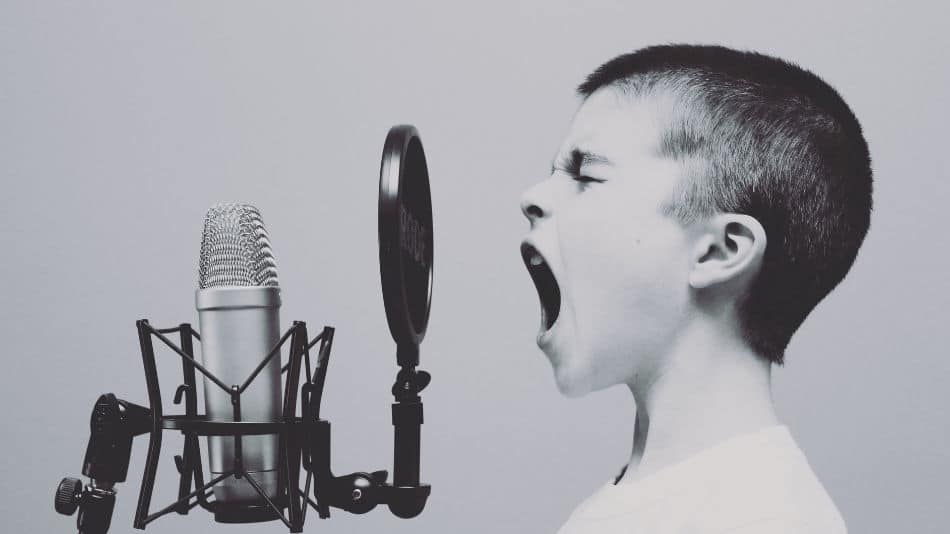Introduction
Effective communication is a critical aspect of success in personal and professional settings. Verbal communication skills, in particular, play a significant role in how we express ourselves, connect with others and build relationships. This article aims to explore the importance of verbal communication skills, provide tips and strategies for improving them and address common barriers that can hinder effective communication.
The Importance of Verbal Communication Skills
Verbal communication is the use of spoken words to convey messages and ideas. It is the most common form of communication and plays a vital role in our daily lives. Whether we are interacting with our family, friends, colleagues or customers, our ability to communicate effectively can impact the quality of our relationships and the outcomes of our interactions. Strong verbal communication skills can help us to express ourselves clearly, listen actively, build rapport, negotiate effectively and resolve conflicts.
Understanding the Fundamentals of Effective Communication
Before we dive into the tips and strategies for improving verbal communication skills, it is essential to understand the fundamentals of effective communication. These include:
Clarity: being clear and concise in your message
Active listening: paying attention and responding to the speaker
Tone: using appropriate language and tone for the situation
Nonverbal cues: understanding and using body language and facial expressions
Tips for Improving Verbal Communication Skills
Active listening: Active listening involves paying attention to the speaker and demonstrating that you are engaged in the conversation. Some tips for active listening include maintaining eye contact, nodding and responding appropriately, and asking clarifying questions. Avoid interrupting them and try to avoid distractions.
Being clear and concise: Being clear and concise in your message helps to ensure that your listener understands your message. Use simple and direct language, avoid jargon and technical terms, and stay on topic.
Using appropriate language and tone: Using appropriate language and tone can help to convey respect and establish rapport. Avoid slang, profanity and offensive language, and use a friendly and professional tone. Try to avoid using a monotone voice and use inflection to emphasise important points. Use pauses and intonation to convey meaning.
Avoiding assumptions and stereotypes: Avoid making assumptions or stereotyping people based on their gender, age, race or other factors. Instead, approach communication with an open mind and a willingness to learn.
Strategies for Enhancing Verbal Communication Skills
Practicing in real-life situations: One of the best ways to improve your verbal communication skills is to practice in real-life situations. Whether it’s making a presentation, networking at a conference or having a difficult conversation, practice can help you build confidence and refine your skills.
Taking communication courses: Communication courses can help you to learn the theory and techniques of effective communication. You can find courses online, at community colleges or universities, or through professional development programmes.
Seeking feedback and constructive criticism: Asking for feedback from others can help you to identify areas for improvement and get insights into your strengths and weaknesses. Seek feedback from a variety of sources, including colleagues, mentors and coaches.
Overcoming Common Barriers to Effective Verbal Communication
Effective communication can be hindered by several common barriers, including:
Language and cultural differences: When communicating with people from different cultures or who speak different languages, it’s important to be aware of potential language and cultural barriers. Try to learn about the other person’s culture and language and be patient and respectful when communicating.
Personal biases and prejudices: Personal biases and prejudices can affect our communication and lead to misunderstandings or conflict. It’s important to be aware of our biases and work to overcome them to ensure effective communication.
Emotional triggers and traps: Our emotions can sometimes get in the way of effective communication. If you find yourself becoming emotional during a conversation, take a break, and come back to it when you’re feeling more level-headed.
Conclusion
Verbal communication skills are essential for success in personal and professional settings. By understanding the fundamentals of effective communication, following tips and strategies for improvement, and overcoming common barriers, you can enhance your communication skills and build stronger relationships with those around you.
Frequently Asked Questions:
Common mistakes include speaking too quickly, using unclear or overly complex language, interrupting the speaker and failing to listen actively.
Some ways to improve active listening skills include maintaining eye contact, nodding and responding appropriately, and asking clarifying questions.
Being aware of your biases and prejudices is the first step in overcoming them. Try to approach communication with an open mind and be willing to learn from others.
Some strategies include role-playing, joining a public speaking group and seeking out opportunities to speak in public or give presentations.
Main image credit: Photo by Jason Rosewell on Unsplash

